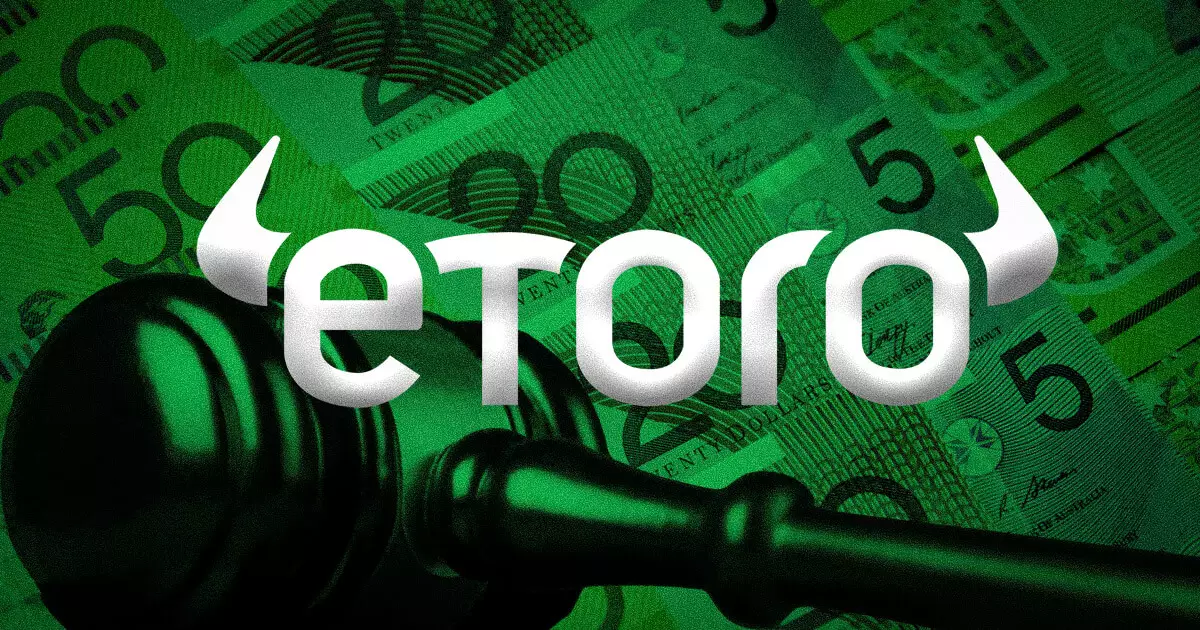The Australian Securities and Investments Commission (ASIC) has taken legal action against eToro, an online trading platform, for allegedly breaching financial regulations related to cryptocurrency derivative products. The violations have reportedly resulted in significant losses for two-thirds of its CFD traders. This article closely examines the allegations made by ASIC and the potential consequences for eToro.
ASIC’s Allegations
ASIC has accused eToro of violating the design and distribution obligations outlined in the Corporations Act 2001. The regulatory body expresses disappointment over these alleged breaches, particularly considering eToro’s market penetration and global brand recognition. ASIC emphasizes the need for CFD target markets to be narrowly defined due to the high risk involved and asserts that CFD issuers cannot manipulate target markets to suit existing client bases.
Defining the Target Market
One of ASIC’s key allegations is that eToro defined its CFD target market too broadly, including retail clients with a medium-risk tolerance and no prior experience in investing or understanding of CFD trading risks. This expansive definition may have exposed inexperienced traders to potential financial losses. eToro has responded to these allegations by stating that it is considering the claims and already operating with a revised target market determination in line with ASIC’s concerns.
The Importance of Regulation
eToro emphasizes its commitment to adhering to rules and regulations in all jurisdictions where it operates, collaborating closely with financial authorities to ensure consumer protection. The company acknowledges the need to balance access for individual investors with the necessary safeguards. It also affirms its plans to continue operating in Australia and provide its existing users with an optimal customer experience.
Inadequate Screening Tests
According to ASIC, eToro’s screening tests for retail investors were overly lenient and ineffective, failing to exclude potential customers who were unsuitable for CFD trading. The regulatory body argues that these inadequate screening tests allowed inexperienced and ill-suited investors to trade CFDs, putting them at risk of significant financial losses. ASIC believes that CFDs are generally unsuitable for most retail investors due to their complexity and leverage.
The Lawsuit and Potential Consequences
ASIC is seeking penalties, compliance orders, and costs from eToro for its alleged breaches of financial service licensee obligations. The regulatory body claims that eToro failed to act honestly, efficiently, and fairly, ultimately causing harm to consumers. These design and distribution obligations require firms to create financial products that meet consumer needs and distribute them in a targeted manner. The case will be heard in the Federal Court of Australia.
Protecting Consumers
This lawsuit is part of ASIC’s ongoing efforts to protect consumers from high-risk CFD trading unsuitable for their financial circumstances. The regulator has previously taken administrative action against other trading platforms to safeguard consumer interests. For consumers seeking guidance on financial decision-making, ASIC’s Moneysmart provides valuable resources, including information about the risks and complexities associated with CFD trading.
This lawsuit against eToro reflects a broader trend of regulatory scrutiny surrounding cryptocurrency trading platforms. As concerns about consumer protection in the digital asset sector grow, regulators worldwide are increasingly focused on implementing safeguards to ensure investor well-being.
While eToro has yet to publicly comment on the lawsuit, the outcome of this case will likely have significant implications for the platform’s operations and the wider cryptocurrency trading industry.
ASIC’s legal action against eToro highlights the importance of complying with financial regulations and protecting retail investors. The allegations against eToro concerning its target market determination and inadequate screening tests have raised concerns about the platform’s practices. This lawsuit serves as a reminder of the need for effective consumer safeguards in the evolving landscape of cryptocurrency trading.


Leave a Reply